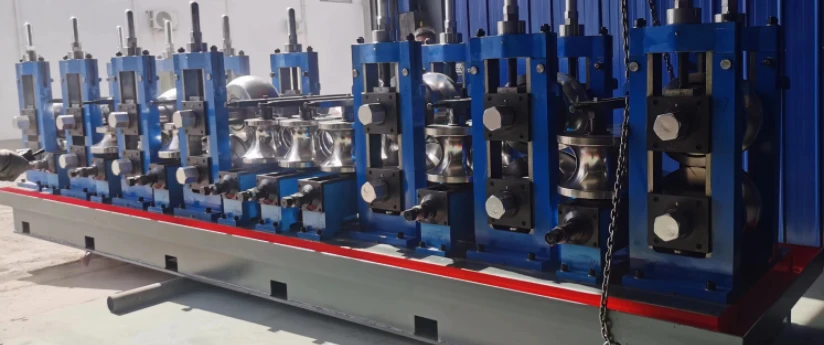plastic pipe machine
The Evolution and Importance of Plastic Pipe Machines
In recent years, the need for efficient and durable piping solutions has driven significant advancements in manufacturing technologies, notably in the plastic pipe industry. Plastic pipe machines play a crucial role in producing various types of plastic pipes that are indispensable in countless applications, ranging from plumbing and drainage to industrial and agricultural uses.
Understanding Plastic Pipe Machinery
Plastic pipe machines are specialized equipment designed for the extrusion, shaping, and cutting of plastic pipes. These machines use high-temperature, high-pressure processes to melt plastic granules and mold them into pipes of various diameters and lengths. There are different types of machines based on the material being used, such as polyvinyl chloride (PVC), polyethylene (PE), and polypropylene (PP). Each of these materials has unique properties that make it suitable for specific applications, thus influencing the design and operation of the respective machines.
The Extrusion Process
The core operation conducted by plastic pipe machines is known as extrusion. In this process, dry plastic granules are fed into a hopper, where they are heated and melted within a rotating screw. The molten plastic is then forced through a die that shapes it into a continuous pipe. After exiting the die, the pipe is cooled through various methods such as water baths or air cooling systems. Finally, it undergoes a calibration process to ensure that it meets the required specifications and dimensions.
The efficiency and precision of this process have been significantly enhanced by the integration of modern technologies, such as automation and control systems. Advanced plastic pipe machines today are equipped with sensors and computerized controls that monitor parameters like temperature, pressure, and flow rate, ensuring consistent quality and reducing material waste.
Importance of Plastic Pipe Machines
plastic pipe machine

The significance of plastic pipe machines extends beyond just the manufacturing process; it encompasses the broader implications for infrastructure and environmental sustainability. Plastic pipes are lightweight, resistant to corrosion, and cost-effective, making them an attractive alternative to traditional materials such as metal and concrete. Their versatility allows them to be used in a variety of sectors including construction, telecommunications, and agriculture.
Moreover, the use of plastic pipes contributes to more sustainable practices. They are often less energy-intensive to produce compared to metal pipes, and their longevity reduces the need for frequent replacements. Advances in recycling technologies further enhance the sustainability of plastic pipes, as many can be reclaimed and reused in the production of new pipes.
Future Trends
As the demand for plastic pipes continues to rise—driven by urbanization, infrastructure development, and increasing environmental awareness—the evolution of plastic pipe machines is expected to accelerate. The industry is witnessing a shift towards smart manufacturing technologies, including the Internet of Things (IoT) and artificial intelligence (AI). These innovations will enable manufacturers to optimize production processes, predict maintenance needs, and further enhance product quality.
Additionally, there is growing interest in developing biodegradable and bio-based plastics for pipe production, which could revolutionize the industry and address plastic pollution concerns. As research progresses in this area, plastic pipe machines may need to evolve to accommodate different materials and processing techniques.
Conclusion
In summary, plastic pipe machines are vital to producing reliable and sustainable piping solutions that meet the demands of various industries. Their evolution underlines the importance of technological advancements in manufacturing processes, which ultimately contribute to more efficient and environmentally friendly practices. As we look to the future, it is clear that the role of plastic pipe machinery will only grow more integral to building the infrastructure of tomorrow. Investing in these technologies not only enhances production capabilities but also supports a more sustainable approach to pipeline systems globally.
-
High Frequency Straight Seam Welded Pipe Production Line-BzZhou Xinghua Machinery Equipment Manufacturing Co., LTD.|Precision Welding, High EfficiencyNewsJul.30,2025
-
High Frequency Straight Seam Welded Pipe Production Line|BzZhou Xinghua|Precision Welding&EfficiencyNewsJul.30,2025
-
High Frequency Straight Seam Welded Pipe Production Line - BzZhou Xinghua|Precision Engineering&EfficiencyNewsJul.30,2025
-
High-Frequency Straight Seam Welded Pipe Production Line-BzZhou Xinghua Machinery Equipment Manufacturing Co., LTD.NewsJul.30,2025
-
High-Frequency Straight Seam Welded Pipe Production Line-BzZhou Xinghua Machinery Equipment Manufacturing Co., LTD.|Precision Manufacturing, High EfficiencyNewsJul.30,2025
-
High Frequency Straight Seam Welded Pipe Production Line-BzZhou Xinghua Machinery Equipment Manufacturing Co., LTD.|Precision Steel Pipe Manufacturing&Industrial EfficiencyNewsJul.29,2025


